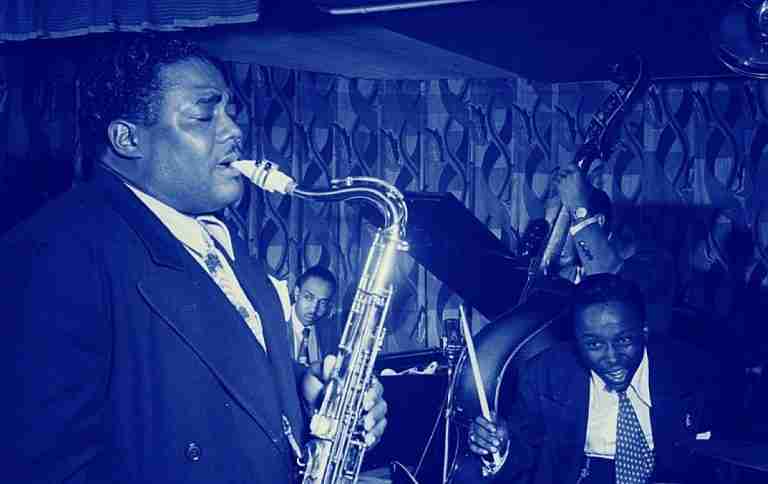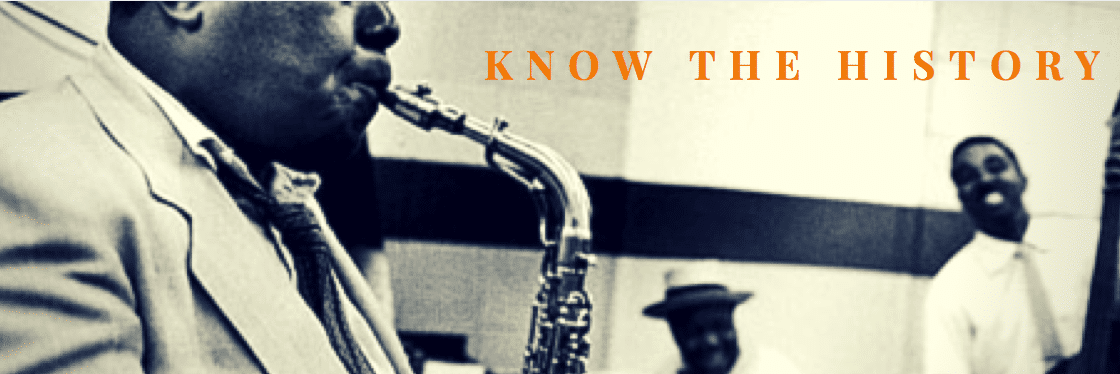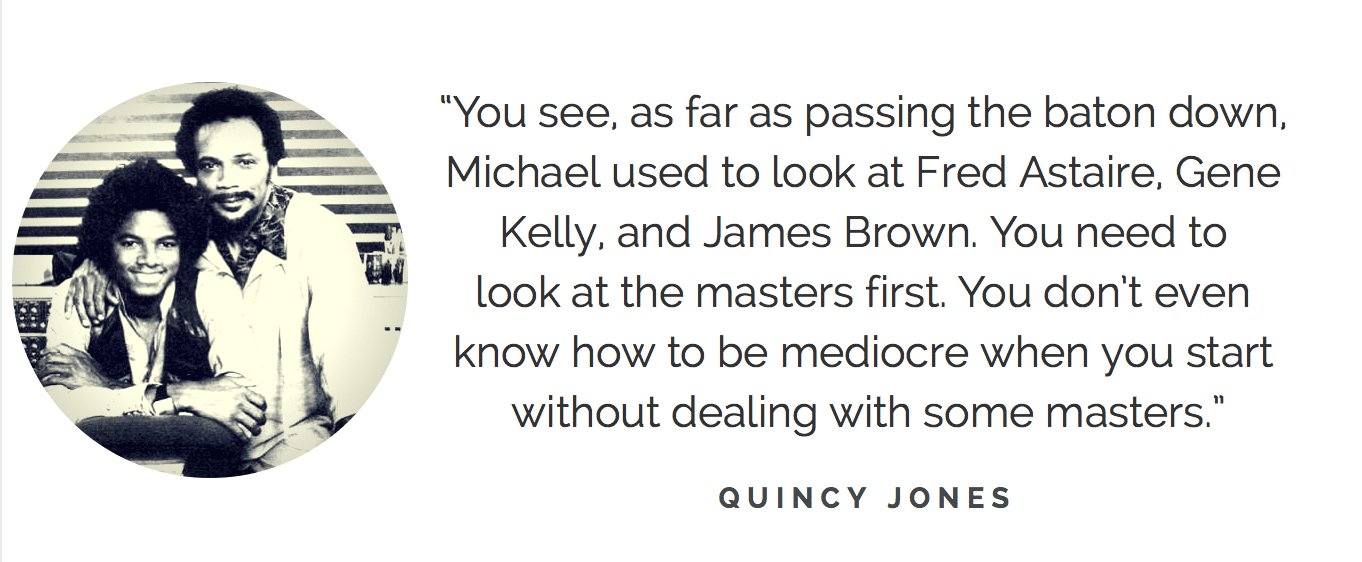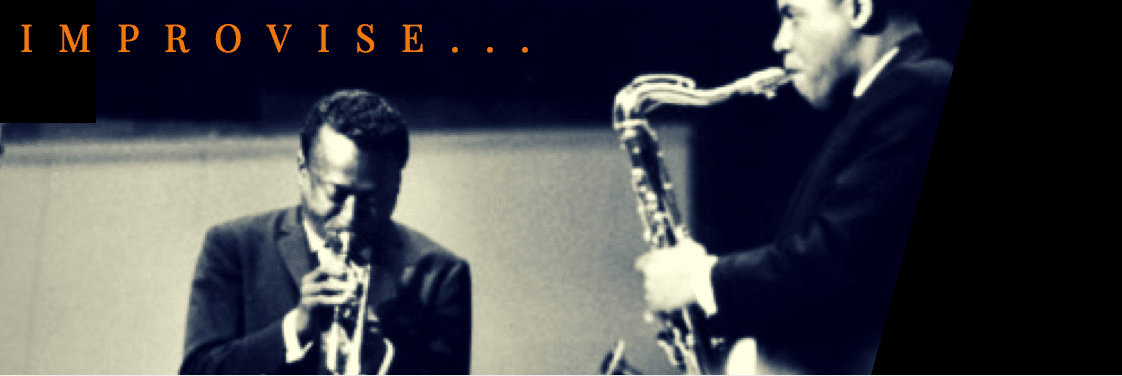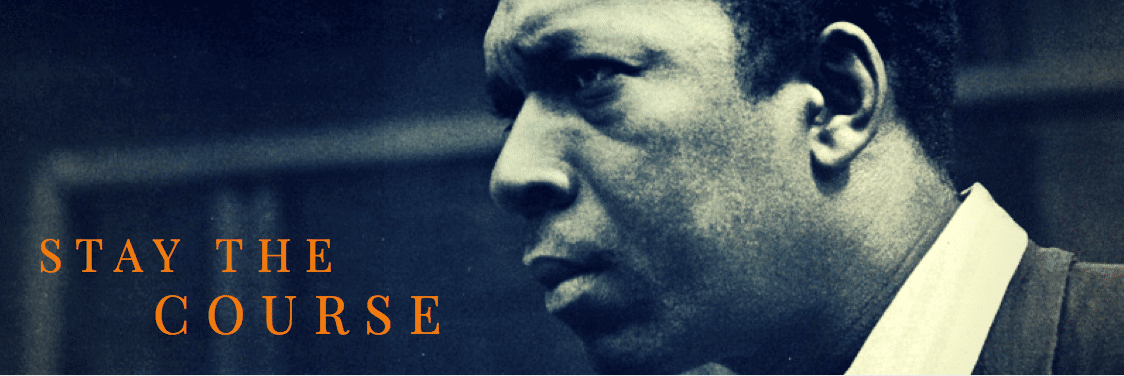I’m guessing you’ve heard of Miles Davis. That you know Louis Armstrong and have listened to Charlie Parker and John Coltrane. But have you ever stopped and wondered why you know these names? Some of these masters have been gone for 40 years and some of their records are nearly 80 years old. So why are we still listening?
And why does an album like Kind of Blue become the best selling jazz album of all time?
There must be a mystery ingredient that makes some players or albums stand the test of time and become household names, while others are lost to obscurity, failing to connect with a wider audience.
While these musical masters couldn’t predict the future, they did have something in common. In fact they all shared some very specific qualities that allowed their music to travel the world and endure for years.
What’s more, these qualities are true of great people in various fields of work and these principles can be applied to more than just music.
So take note and pay attention to the greatest improvisers, if you’d like to share your music with more people and you’d like to reach a new level of artistry, learn these 7 lessons well.
1) Connect with your audience in a meaningful way
We love fireworks.
We’re drawn to technical flash, larger-than-life stage presence and shocking special effects. The high notes and fast tempos make us squeal with delight and the lure of the pop-star captivates our attention.
It’s entertainment, it’s sexy and it sells.
But does this music stick with you? Does it change you? Probably not. What will change you however, is something much deeper.
Under the surface appeal of flashy technique and showmanship, you’ll find that nothing hits home more than a message that connects with your audience’s emotions. A story that draws the listener in and connects them to your message.
So strive to tell a story when you’re playing. Tell your story.
A simple musical phrase played with intent and feeling has much more impact than a wash of eighth note lines. The sound of even a single note can cut right to the core with more impact than all the technique and flash in the world.
This is why we still listen to Louis Armstrong, Bird & Diz, John Coltrane and Kind of Blue.
The music creates a mood, expresses an emotion and tells a story.
It’s more than just the notes. It goes beyond the chords and scales. It’s something that you feel.
So when you improvise, get past thinking about the notes and chords. What do you have to say to your listeners, what mood are you going to create with your ensemble, and what are you going to share about yourself through your music?
The process is the same whether you’re a writer, an entertainer, a public speaker or anyone that is presenting something to other people – have a message that connects with your audience in a meaningful way.
Remember, the musicians that you love to listen to are the ones that told their own story, so make sure you are telling yours.
2) Embrace the human element of your art
Listen to Louis Armstrong sing.
Study how Billie Holiday interprets a melody.
Put on a recording of Chet Baker singing My Funny Valentine.
You can even check out the vocal work of Michael Jackson, Bob Dylan, Eddie Vedder, or Jimi Hendrix…
Now what do you notice?
It’s human. It’s raw and honest and it’s coming from the core of the person delivering it.
Sure, it’s not the “normal” sound of a singer and it’s not technically perfect. These aren’t classically trained vocalists that follow the rules of convention, yet they are some of the most popular and revered artists ever to live.
You see music isn’t about perfection or flawless technique, and it’s not about being popular or fitting into a mold.
“Have no fear of perfection – you’ll never reach it.”~Salvador Dali
Too often we get caught up in the technique or theory of making something sound perfect that we end up losing the personality of our message. Perfection may be something to strive for in the practice room, but perfection should not be the goal of your playing.
As musicians it’s our job to transfer a personal message through sound. Your music should express a feeling and inspire an emotion.
While our instruments are great tools for producing sound, nothing grabs the attention of the ear as much as the sounds we make with our vocal chords. We’re hardwired to respond to tone, inflection, louds and softs, and the same should be true of your instrumental playing.
In your playing be sure to connect to your inner-musicality and play what you’d sing. Grab your listeners’ attention with your style and keep them hooked with your story. With the best players, you don’t just hear the instrument, you hear the personality of the person playing it.
3) Learn the tradition and build upon it
You might be a winemaker, an educator, or a sculptor.
You might be a complete beginner practicing the basics or a seasoned professional looking to get to the next level.
Whatever your field of work or skill level, there is a tradition of practicing your craft. A history of techniques, a list of essential skills, and a few pioneers that pushed the art form forward.
If you want to be successful you need to know what came before you.
When it comes to music, humans have been dealing with sound and rhythm for longer than we can remember and there is a lot that we can gather from the musicians of the past. The art of performing, the technique of playing your instrument, the study of time and harmony, and the tradition of crafting a musical phrase.
Every great improviser that we listen to today learned this music by looking at the masters that came before them, whether it was through listening to records, transcribing solos, or learning from older musicians in their community.
Take Woody Shaw for instance:
“…I come from the tradition of great trumpet masters of the past like Dizzy, Brownie, Lee and Freddie. But I want to sound like Woody Shaw. I’ve been heavily influenced by Trane and Eric Dolphy and saxophonists in general, so I see a unique course developing in my own style. I think I sound like Woody Shaw.”
Widely recognized the last great innovator on the instrument, Shaw tells us himself that the tradition of past trumpet masters was the foundation for his unique style of playing.
And it’s just as true for pop music as it is for any other style of music, the masters of the past pave a way for the players of the future.
Clark Terry said it best: “Imitate, Assimilate, Innovate.”
Every innovator in this music had to learn from their predecessors. Copying their styles, absorbing their sound, practicing and memorizing their solos, and eventually creating a unique voice all their own.
Imitating, assimilating and innovating on the music that came before them.
This is the great illusion of many influential artists. We see a brand new player heading in a new direction, yet no ones sees the dozens of people they copied, the hours they spent alone in a practice room, and the effort they put in getting their music out there.
To the casual observer this player just appeared out of thin air – this is the illusion. Every great player is standing on the shoulders of the musicians that came before them. Make sure you are learning the history of your craft. You can’t innovate until you’ve imitated the masters, until you’ve assimilated all of this information through hours of practice.
4) Welcome the unknown
We call the art of creating a melody over a chord progression improvising.
Yet many soloists neglect to do this very thing. They practice the same exercises, they learn the same licks, and they repeat the same patterns in every solo.
Remember this music is about the moment. Experiment. Take chances…Improvise.
The greatest musicians excelled at creating music in the moment and you should strive to do the same.
Don’t turn off your creativity by relying on the same memorized licks for every solo and avoid getting stuck in a routine when you’re performing. Each time you practice or play with another musician should be an opportunity to explore the unknown.
“It’s not about standing still and becoming safe. If anybody wants to keep creating they have to be about change.”~Miles Davis
If you find yourself playing old material, using the same old lines, or ignoring the players around you stop! Reset and get into a creative space. It’s in this magic of the moment that the true artists thrive.
5) Study topics beyond your area of expertise
Being a musician doesn’t mean that you can only study music.
And being a jazz musician doesn’t mean that you can only listen to jazz.
Over time the greatest improvisers have gathered inspiration and studied music from around the world. From the tradition of western classical music to African music to Indian music and beyond musicians have been exploring new sounds and searching for different avenues of expression.
For instance, along with his other musical heroes Charlie Parker gathered inspiration from contemporary composers like Bartok and Stravinsky. After all sound is sound and for the improviser anything is fair game.
But it goes one step further than musical sources of inspiration. Many artists also study philosophy, religion, different cultures, and ancient thought. Artistic movements are guided by a philosophy and a mindset about how to live life, and this philosophy is transferred to their creative work.
Listen to Tom Harrell as he speaks candidly about the philosophies surrounding his life and music:
Apply different schools of thinking to your art form or vocation.
“Coltrane, at the end, all he was talking about was spiritual things. That’s the kind of music he was trying to play. That’s where he was at. The goal is not to be one person off the stage and another person on the stage. The goal is to be a complete circle.”~Sonny Rollins
Your life informs your art and your art informs your life. For the greatest artists the two are one and the same. You aren’t just an musician, you’re a human being telling your story.
6) It takes time and dedication to realize your vision
It took four years for Beethoven to complete his 5th symphony at the age of 38.
Mark Twain was 49 when he wrote Adventures of Huckleberry Finn.
At 38, John Coltrane recorded A Love Supreme, three years before his death.
Leonardo Da Vinci was 51 years old when he painted the Mona Lisa.
The list goes on and on.
In today’s society we’ve become accustomed to the quick fix, getting information at the click of a button and seeing results immediately.
However, it takes time to acquire the skills you need to achieve your goals. You can’t just spend a few weeks or a few months on a project and expect to succeed. Reaching your goal as an improviser takes years.
And if you want to make something that will be remembered for generations to come…well that’s going to take even more!
We look at the names of famous musicians and instantly assume that it was easy for them to achieve that level of mastery. We assume that they had “talent,” a gift, that they were musical prodigies.
Some of that may be true, but they also had to work extremely hard. They spent years practicing and listening and performing, in pursuit of their goals. As the greatest artists struggled and persevered to succeed, be sure to stay the course in pursuit of your own goals.
7) Be different
Jazz is a music for individuals.
In order to get up on stage in front of an audience and improvise a solo you need a certain level of self-certainty.
There are plenty of styles of music out there where you can play a part and blend in, but improvising requires a personality.
You need to stand out from the crowd and you need to take a stand. You have to have something meaningful to say and you need to say it in the moment.
Learning this music requires imitation, but performing this music demands originality. No one wants to hear a copy of Coltrane or a clone of Bird. These musicians have already made their mark, now it’s time for you to make yours.
“Be yourself; everyone else is already taken.”~Oscar Wilde
Right now you have an individual sound. You might not realize it, but it’s buried deep inside of you. This sound is crafted by the records you listen to, the players you imitate, and the exercises you practice.
The history of this music is full of unique individuals, a succession of personalities and original voices coming through every type of instrument. This is the challenge of every aspiring improviser – at some point you must speak with your own voice.
Learn these lessons
Understanding music theory doesn’t necessarily make one a good musician, and mastering an instrument doesn’t necessarily mean you can play a great solo.
Beyond technique and a theoretical understanding comes the real reason you are playing music.
And it’s in this place that the greatest musicians excelled.
A place where the instrument, the notes, and the theory all become secondary to the musical message of the artist.
This is the reason we’re still listening to Louis Armstrong, still playing Beethoven, still talking about Bird, and still in awe of John Coltrane. These masters were well versed in musical lessons that can’t be written down, lessons that they’ve learned from the musicians that paved the way before them.
Learn from these musicians and artists that have stood the test of time: Tell your story, be human, know the tradition, take chances, be patient & persistent with goals, gather inspiration outside of music, and be different.
As an improviser you have much in common with artists and creative peoples everywhere. Your goal is bigger than playing music.
Just like the greatest musicians, you’re not just an instrumentalist or a jazz musician, you are an artist…a human being with an important message that needs to be shared. So take these 7 lessons from the players that we still listen to today and make them your own.
